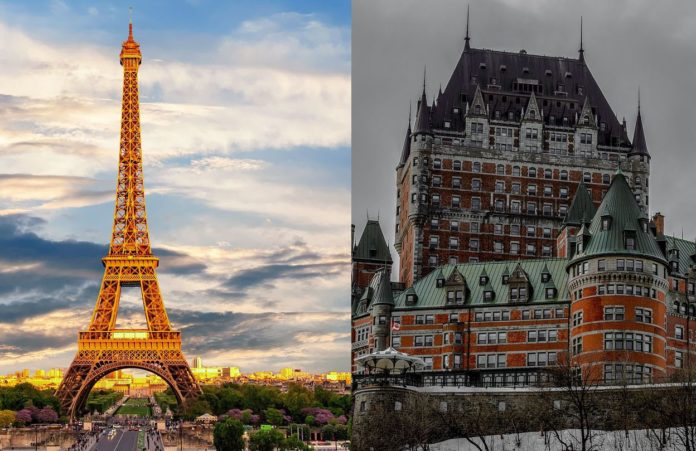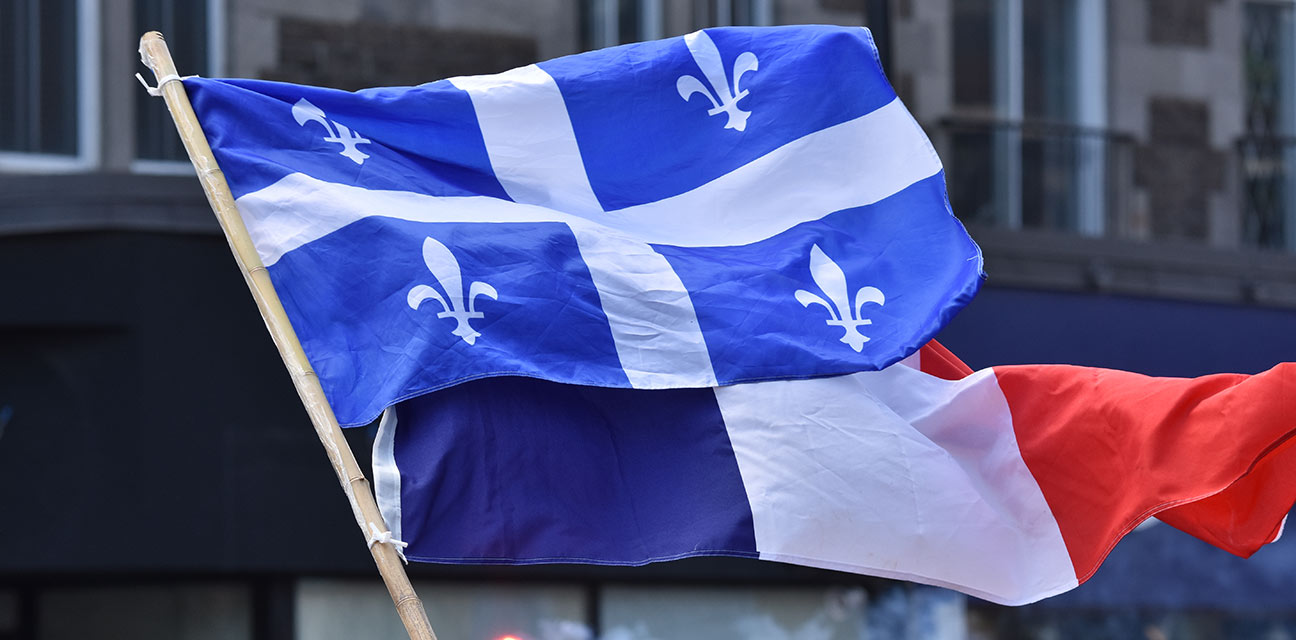There is sort of a funny rivalry between France and the province of Québec in Canada. They both are French-speaking but have a different accent, they both have great food, culture, gorgeous landscapes, etc. but for some reason, they both sneer at each other’s accents and slangs. Do you know the most important differences between French and Canadian French?
Even though most people think France is the “true” French (the international French), and that Québec is a “lesser” type of French, it isn’t true. Both have different histories that have shaped their language. Before thinking that France is the ultimate French language, learning the linguistic history of both branches will help you understand more about the two, understand the differences between French and Canadian French and why they are so different.
The Differences Between French and Canadian French
First, you need to understand that everywhere people speak French, it sounds a little bit different and so there isn’t one proper French. Belgium French is not exactly like the French spoken in France or Switzerland. Even inside a country, the people from the Eastern part of the country won’t sound exactly like the ones from the South or the North. Where you live has an impact on the way you speak.

A Bit of History
The French settlers who came to Quebec in the 17th and 18th centuries were from all over France so all their various lexicons and accents melted together, becoming one French. It is said that some of the French spoken during the early colonization was perfect French, French spoke by Louis XIV’s royal court. But there was also French from Normandy and other regions that heavily influenced Canadian French. It was only when the English won over the French on the Plains of Abraham in 1759 that the French were obliged to cut ties with their native land. Since they weren’t mixed with other French-speaking people, their lexicon didn’t evolve in the same way. With time, the French from France evolved and changed their lexicon while the French in Quebec also changed their lexicon but it didn’t evolve like the French in France since they were more and more isolated from France. Quebec French stayed closer to France’s more archaic French. It is said that when the French re-established a relationship with the Canadian French, both couldn’t understand themselves.
Of course, a lot of French Canadian words have been influenced by the Aboriginals and English. Aboriginal words like Mocassin, toboggan, kayak, caribou transitioned into the French language in Quebec. These two communities both heavily influenced Quebec French but didn’t in France because they were no aboriginal people and the English didn’t take over the country.
The true changes between the two French come from more specific slang terms and expressions. If you go to both Montreal or Quebec City in Canada and in Paris or Lyon you won’t think they are speaking two distinctly different languages. You’ll probably only notice small nuances. However, if you go in the North of France or Quebec in a small village, you might find it more difficult to understand because of the stronger accent.
Differences Between Some Words in Quebec and France
Words that mean the same thing in Quebec French and French from France:
QUEBEC VS FRANCE
- Banc de neige – Congère
- Bicyclette – Vélo
- Souffleuse – Chasse-neige
- Tuxedo – Smoking
- Débarrer – Déverrouiller
- Canneberge – Airelle
- Débarbouillette – Gant de toilette
- Melon d’eau – Pastèque
French and Canadian French: Can You Tell The Difference Between The Two Now?
If you ask a French person and a Quebecer to write you an email about the same subject, you probably will only see a small difference with the words they’ve written down but the overall message should be the same for both. Most Quebecers are much more casual between themselves, they won’t use vous unless they are in a more serious and important situation. Usually, children will say vous to adults but between adults, they won’t. On the contrary, in France, saying vous is almost the norm no matter who you’re talking to. It makes sense since Quebecers have been influenced by the English who only say you.
In France, the French have embraced a lot of English words that Quebecers tend to avoid. In France, people tend to use more anglicised words whereas in Quebec, to protect the language, they will use French words and look down on anglicisms.
Since Quebec wants to preserve its language as much as it can, the language rules are much stricter. Actually, Quebec French is the most protected language in the world. The 101 law protects French and immigrants that come live in Quebec need to send their kids to francophone schools and all businesses have to speak adequately in French.
So, do you understand the differences between French and Canadian French? No matter if you prefer Quebec French or French from France, these two variants of French have a lot of history and both are extremely appropriate. It’s useless to compare one to the other since there are too many differences between the two. If you get to go to both these places, enjoy the various accents and try to learn some local slangs!













